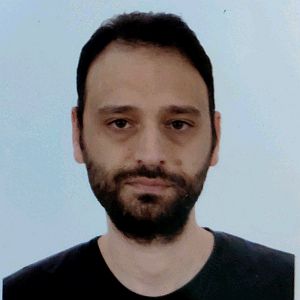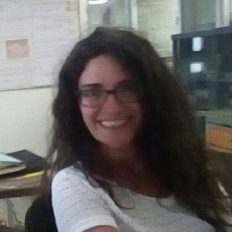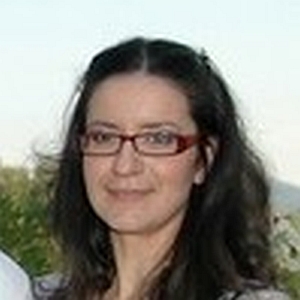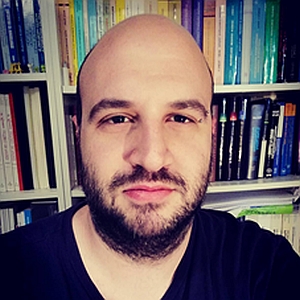alumni
- Manousakas is a chemist and he graduated from the Chemistry Department of the University of Patras. He holds an MSc in Environmental analysis and got specialized in atmospheric aerosol studies during his PhD studies. During his studies he was focused on the chemical characterization of aerosol samples using chemical and especially nuclear techniques (XRF, PIXE) and aerosol sources identification and characterization. He is working as a post-doctoral fellow at NCSR Demokritos since January 2015, in the framework of the research programs funded by National Government and/or the European Commission. He is an accredited XRF analyst according to accreditation certificate No. 447-3 for EN ISO/IEC 14902: 2005 Standard and has significant experience in aerosol sampling and analysis, for ambient atmosphere and industrial emissions. His main specialty is the application of aerosol source apportionment techniques using receptor models. He has been employed as an International Expert for the application of source apportionment techniques in several missions in Europe, Africa and Asia from the International Atomic Energy Agency (IAEA).
Vasiliki Kantarelou, studied physics at the University of Patra, Greece (BSc) and in 2003 she was granted a PhD scholarship from the Institute of Nuclear and Particle Physics (INPP) at NCSR "Demokritos". Vasiliki Kantarelou received her PhD in 2016 from the School of Applied Mathematical and Physical Sciences of the National Technical University of Athens. During her PhD thesis she has accomplished the optimization and improvement of the Micro-XRF analytical performance towards compositional studies of ancient metal collections including gold, silver and copper artifacts, utilizing newly developed quantification methods based on the so-called, X rays fundamental parameters approach. Through her overall research work, she has acquired broad experience by utilizing and evaluating different variants of XRF spectrometers in the field of Cultural heritage, including benchtop, portable and handheld XRF analyzers, but also MA-XRF mobile spectrometers, for the analysis of a remarkable number of museum collections in Syria, Malta, Jordan, Ancient Messene, Olympia, National Archaeological Museum of Athens, Benaki museum and at the Chora Museum in Pylos. During the period 2013-2019 Vasilike Kantarelou worked as research associate of the XRF laboratory of INPP supporting the development of XRF analytical procedures for elemental analysis of Air Particulate Matter, the standardization of quantification procedures for portable XRF spectrometers conducting several in-situ micro-XRF campaigns for analyzing unique collections of archaeological artefacts.
Vasilike Kantarelou has worked as a sessional lecturer in the post-graduate MSc course in Cultural Heritage materials and technologies at the Department of History, Archaeology and Cultural Resources Management, University of Peloponnese (2015-2018) and in the Inter-departmental Program of Postgraduate Studies, “Protection Conservation and Restoration of Cultural Monuments”, Aristotle University of Thessaloniki, School of Architecture, Thessaloniki (2010, 2012, 2014). She has 24 publications in peer-reviewed journals, 7 in peer reviewed conference proceedings and contribution in one book chapter. She is currently working as post-doctoral researcher at the Institute of Physics of the Czech Academy of Sciences funded by the ELI-Beamlines project.
Paraskevi (Vivian) Dimitriou obtained a B.Sc. degree in Physics at the National Kapodistrian University of Athens in 1991 and a DPhil degree at the University of Oxford in 1996. She was awarded a scholarship from the State Scholarship Foundation (IKY) to carry out her PhD studies. After her studies she held the following posts: European Mobility Training Network position at Universitѐ Paris VI, Paris (6 months), INFN Postdoctoral Fellowship at Universita degli studi di Pavia-INFN sezione di Pavia (1996-1998), Postdoctoral Fellowship at the Institute of Nuclear Physics, NCSR Demokritos, Athens (1998-2002), Marie Curie Fellowship (FP6) at the Universite Libre de Bruxelles, Brussels (2002-2004). In 2005 she was a visiting scientist at the Universite catholique de Louvain-la-Neuve and a Research Associate at the Institute of Nuclear Physics, NCSR Demokritos were she held a European Reintegration Grant (FP6). Since 2006 she has been working at the Institute of Nuclear and Particle Physics, NCSR Demokritos.
Her main research interests include modelling of nuclear reactions for applications in nuclear astrophysics, materials sciences, medical and energy applications. At Demokritos she focused on nuclear reactions relevant to the p process of nucleosynthesis. She was scientific secretary of the first International Symposium on p process held in Vravrona (2001), and the three international conferences on FINUSTAR (2005, 2007, 2010) organized by the nuclear astrophysics group at INPP. In 2011 she organized the International Workshop on Thermal Nuclear Reactions Rates for Astrophysics Applications (THERRAA).
From 2012 to 2019 she held the position of Nuclear Data Physicist at the International Atomic Energy Agency and worked in the field of nuclear data. During this period she was the scientific secretary of the International Network of Nuclear Structure and Decay Data and Director of 4 Joint IAEA-ICTP Workshops. She coordinated international coordinated research projects and data development projects.
Her current activities include modelling of nuclear reactions for p- and r-process nucleosynthesis, and the evaluation of nuclear reactions and decay data for energy applications, materials sciences and nuclear astrophysics. She is participating in two IAEA projects: R-matrix Calculations for Charged-particle Reactions in the Resolved-Resonance Region/INDEN for Light Elements and Decay Data for Monitoring Applications.
For selected publications: ORCID: https://orcid.org/0000-0001-8041-549X




